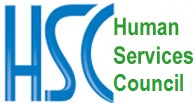02.29.2016
The central issues that led to its collapse are common across all nonprofits in the social service sector.
 In the wake of the March 2015 collapse of Federation Employment and Guidance Services (FEGS), one of the largest social service providers in the sector, the Human Services Council (HSC), which represents organizations across multiple social service sectors including supportive housing, sought to determine to what extent FEGS’ demise was a unique event and to what extent it reflected major sustainability issues within the entire social service sector. The report, “New York Nonprofits in the Aftermath of FEGS: A Call to Action,” determined that while FEGS faced its own challenges, the central issues that led to its collapse are common across all nonprofits in the social service sector, concluding that the sector as a whole is “in crisis.”
In the wake of the March 2015 collapse of Federation Employment and Guidance Services (FEGS), one of the largest social service providers in the sector, the Human Services Council (HSC), which represents organizations across multiple social service sectors including supportive housing, sought to determine to what extent FEGS’ demise was a unique event and to what extent it reflected major sustainability issues within the entire social service sector. The report, “New York Nonprofits in the Aftermath of FEGS: A Call to Action,” determined that while FEGS faced its own challenges, the central issues that led to its collapse are common across all nonprofits in the social service sector, concluding that the sector as a whole is “in crisis.”
Led by Gordon J. Campbell, a former senior government official and former President and CEO of United Way of New York, the Commission consisted of 32 human services executives, civic and philanthropic leaders, former government officials, and other stakeholders with a vast array of knowledge concerning nonprofit management and oversight.
The ensuing report, the product of exhaustive interviews and surveys, found that a full one in five social service providers was insolvent in 2013 and that half were either operating in the red or just breaking even. The report identified three central issues contributing to the crisis, the most prominent of which is that government contracts do not cover the cost of services. The report found that government contracts currently pay 80 cents on the dollar.
An example is Jewish Board of Family and Children’s Services, a Network member and the organization that took over FEGS’ contracts. The agency operates $18 million in the red each year, fundraising $13 million of that sum and using $5 million from the organization’s endowment.
The human services sector works with 2.5 million New Yorkers, spanning housing, behavioral health services, children’s services and job training. The city has 5,100 contracts worth $4.3 billion, and the state has an additional 2,000 contracts worth about $1.5 billion.
The report made seven recommendations, including that government agencies consult with nonprofits as they create new programs. It recommends that wasteful and duplicative oversight regulations should be replaced with meaningful government oversight to ensure that providers are financially and programmatically responsible. The report also states that funders must collaborate with providers in risk assessment and reporting systems to better predict, quantify, understand, and respond to financial, operational, and administrative risks.
The Commission finally recommends that the human services sector establish an RFP ranking system to assess risks and identify problematic government agency policies and practices, better evaluating government performance. This will allow for more informed decision-making around programmatic viability and liability in applying for government contracts to help prevent the collapse of more human services organizations.
“We cannot continue to take on endless government contracts that do not pay the real costs of service, nor should we,” the report said. “If contracts and grants do not pay adequate rates or involve significant hurdles such as unfunded mandates or unjustified metrics, the programs cannot be as effective as they could be, and for too long nonprofits have filled the gap. Now, the gap is too large. Providers have to say no, not only to shed light on funding issues, but because these chronic issues eat away at the fabric of the human services delivery system.” For the full report click HERE.
